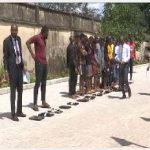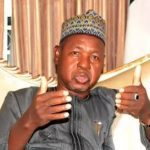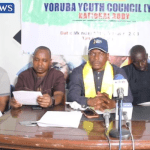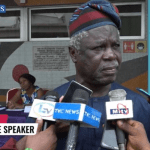Nigeria’s Economic and Financial Crimes Commission (EFCC) has urged youth and religious groups to promote ethical behaviour and combat corruption at all levels.
Mr Olukoyede, chairman of the EFCC, spoke at the launch of the Inter-Faith Preaching and Teaching Manuals and Fraud Risk Assessment Project for Ministries, Departments and Agencies in Abuja, Nigeria.
The event focused on youth, religion and the fight against corruption.
We go again this evening on #EFCCConnect, as we consider the matters arising from the One-Day Dialogue on Youth, Religion and Anti-corruption.
What is the ‘Corruption Risk Assessment for MDAs’ all about?
To know about this, join us by 6pm for another interesting encounter. pic.twitter.com/0LXe4p0VzO
— EFCC Nigeria (@officialEFCC) January 31, 2024
He identified a situation where a religious sect in Nigeria was found to be involved in financial activities associated with money laundering for individuals connected to terrorist organizations.
“A religious sect in this country had been found to be laundering money for terrorists. We were able to trace some laundered money to a religious organisation. When we approached the religious organisation about it and we were carrying out our investigation, we got a restraining order stopping us from carrying out our investigation,” he said.
Mr Olukoyede stated that during the investigation of a N13 billion fraud case, the EFCC revealed that N7 billion of the total amount was associated with a bank account belonging to a religious organisation.
He also revealed that since he assumed office as Chairman of the EFCC about three months ago, the anti-graft commission has secured 747 convictions and most of them were for Internet-related offences.
“Our motivation is to see how corruption, whether in ministries and agencies of government, in the ivory towers, or the private sector, could be prevented before it occurs. The rainbow of stakeholders gathered today affirms the Commission’s strong resolve to provoke an honest dialogue on how this could be achieved across all sectors. This meeting of minds is expected to provide new pathways to drive the anti-corruption campaign to the desired ends.
“We are persuaded that religious leaders and institutions can offer help as a sounding board of integrity and transparency. Our belief in the potential of faith in anti-corruption led the Commission to develop the Interfaith Manual, a preaching and teaching guide for Christians and Muslims. These documents are before us today and We are optimistic that using these resources, the major religions would be in better stead to address the integrity and moral deficit that we find in our society today,” Olukoyede further said
The one-day event was aimed at addressing the challenges of youth involvement in cybercrimes and how religion could be used as a weapon for their reorientation.














